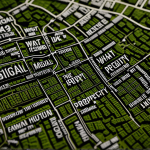Impact of Sustainable Fashion in the UK Market
The sustainable fashion UK sector has witnessed significant transformation in recent years, with increased emphasis on ethical production and eco-friendly materials. In the UK market sustainability landscape, this movement is not merely a trend but an evolving norm influencing major retailers and niche brands alike.
Data shows a steady growth and adoption trend: consumer interest in eco-conscious products has surged, supported by rising availability of sustainable options. Moreover, many UK fashion businesses integrate sustainable practices not just for branding but for genuine environmental commitment. This shift is reflected in measurable changes such as reductions in waste and energy consumption during manufacturing.
Consumer behavior is adapting as well. Awareness campaigns and media attention boost demand for transparency, compelling companies to disclose sourcing and labour practices. Industry-wide, the impact of sustainable fashion reveals itself in increased collaboration with circular economy models and investment in green technologies.
To summarise, the sustainable fashion UK market is evolving from niche beginnings to a substantial economic and cultural force. Sustainable initiatives are reshaping industry norms and driving the UK market sustainability agenda forward through tangible changes in both consumer preferences and production methodologies.
Benefits and Positive Outcomes
The sustainable fashion UK sector delivers tangible environmental impact benefits by significantly reducing waste, carbon emissions, and water consumption. Many UK brands have shifted to eco-friendly materials such as organic cotton and recycled fabrics, which lowers the overall environmental footprint. This transition is not just ecological but also economic. Sustainable fashion enables new job creation within the UK economy, particularly in areas like ethical manufacturing, recycling, and design innovation.
Economic benefits in the UK extend beyond environmental gains. Sustainable practices can drive market differentiation, attract conscious consumers, and build brand loyalty, contributing to stronger commercial success. Specific case studies of UK-based sustainable fashion initiatives highlight these advantages. For example, firms investing in circular design models reduce production costs through material reuse while creating a closed-loop system that conserves resources.
Moreover, the sector stimulates economic opportunities UK-wide, fostering local craftsmanship and supporting smaller businesses. These outcomes are important because they demonstrate how sustainability aligns profitability with responsibility. By focusing on the sustainable fashion benefits from both ecological and economic perspectives, the UK market sustainability trajectory presents a promising path forward, balancing industry growth with conscious resource management.
Challenges and Barriers Faced
The challenges of sustainable fashion in the UK remain a significant hurdle despite growing interest. One major obstacle is cost and accessibility. Sustainable fashion UK products often carry premium prices due to ethical sourcing and eco-friendly materials, making affordability a critical barrier for many consumers. This sometimes limits widespread adoption, especially among budget-conscious shoppers.
Additionally, the UK fashion industry obstacles include complex supply chain transparency. Many brands struggle to fully disclose sourcing and labour conditions across multinational suppliers. This opacity hampers consumer trust and prevents scalability needed for large-scale sustainable shifts.
Consumer awareness is another challenge. While consumer behaviour in the UK is evolving, scepticism persists regarding greenwashing claims, confusing the sustainable fashion UK market. Many consumers find it difficult to distinguish genuinely sustainable brands from those merely marketing eco-friendly images.
Efforts to address these challenges focus on enhancing education, improving certification clarity, and supporting affordable sustainable alternatives. Overcoming these barriers is fundamental to achieving lasting impact in the UK market sustainability efforts.
Impact of Sustainable Fashion in the UK Market
The sustainable fashion UK landscape is marked by notable growth and rising adoption. Recent studies reveal that consumer interest in ethical and eco-friendly apparel has increased steadily, with more shoppers prioritising sustainability in their purchases. Retailers, from established chains to emerging brands, are responding by integrating greener materials and adopting circular practices to improve resource efficiency.
Measurable changes illustrate this impact: waste reduction during production and decreased carbon emissions are now quantifiable outcomes linked to sustainable initiatives. For example, manufacturers are cutting water usage by employing innovative dyeing techniques and utilising recycled textiles. This shift is not merely environmental but also affects consumer attitudes; transparency about sourcing and production is driving higher customer trust and engagement.
Industry partners also exhibit more collaboration, promoting shared supply chain standards and investment in clean technologies. The impact of sustainable fashion extends beyond individual brands, influencing the broader UK market sustainability agenda by fostering systemic change throughout the fashion ecosystem. Consequently, sustainable fashion is transitioning from a niche movement toward becoming embedded within mainstream UK market practices, signaling enduring transformation.
Impact of Sustainable Fashion in the UK Market
The impact of sustainable fashion in the UK market is increasingly evident through clear data trends and behavioural shifts. Recent reports document a significant rise in consumer demand for sustainable fashion UK products, with sales growth rates surpassing many traditional apparel categories. This growth is propelled by heightened environmental awareness and a preference for ethically made clothing, especially among younger demographics.
Retailers are responding to this shift by adopting circular economy principles, such as recycling garments and using biodegradable materials. This systemic change signals a broader commitment to UK market sustainability, beyond isolated brand efforts. Industry-wide, companies report measurable decreases in waste production and carbon emissions, underscoring tangible environmental benefits.
Consumer behaviour shows a growing willingness to pay premiums for transparency and ethical standards. Surveys reveal that many UK shoppers actively seek brands that disclose sourcing and manufacturing processes, highlighting trust as a critical factor. Furthermore, collaborations among fashion businesses and third-party certifiers consolidate these sustainability metrics, helping to standardise practices.
Overall, the dynamic interplay between evolving consumer preferences and proactive industry measures amplifies the impact of sustainable fashion in shaping the UK’s sustainable market landscape. These developments indicate a sustained momentum that goes beyond mere trends, driving structural change within the fashion ecosystem.
Impact of Sustainable Fashion in the UK Market
The sustainable fashion UK sector is currently experiencing robust growth, with increasing numbers of consumers prioritising eco-friendly and ethical choices. Data-driven analyses reveal a steady rise in adoption, with market reports indicating that sustainable product sales are growing faster than many traditional apparel categories. This trend underscores the expanding consumer base that values transparency and environmental responsibility.
What is the current state of sustainable fashion in the UK market? It shows a transition from niche to mainstream, supported by more brands integrating circular design principles and investing in green technologies. This broadening adoption leads directly to measurable outcomes. For example, manufacturers report quantifiable reductions in water use, waste production, and carbon emissions, confirming real UK market sustainability progress.
How is consumer behaviour evolving around sustainability? UK shoppers increasingly demand full disclosure of sourcing and ethical practices, fostering greater trust. Retailers respond by enhancing transparency and collaborating with certification bodies to standardise sustainable methods. The impact of sustainable fashion extends beyond environmental benefits, influencing industry-wide operational shifts that promote systemic change throughout the UK fashion ecosystem.










